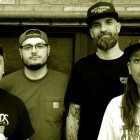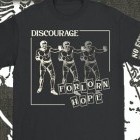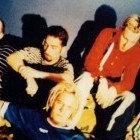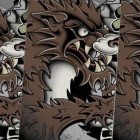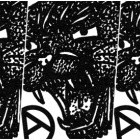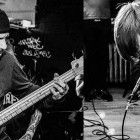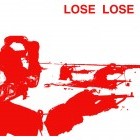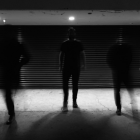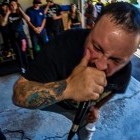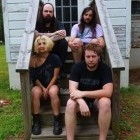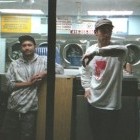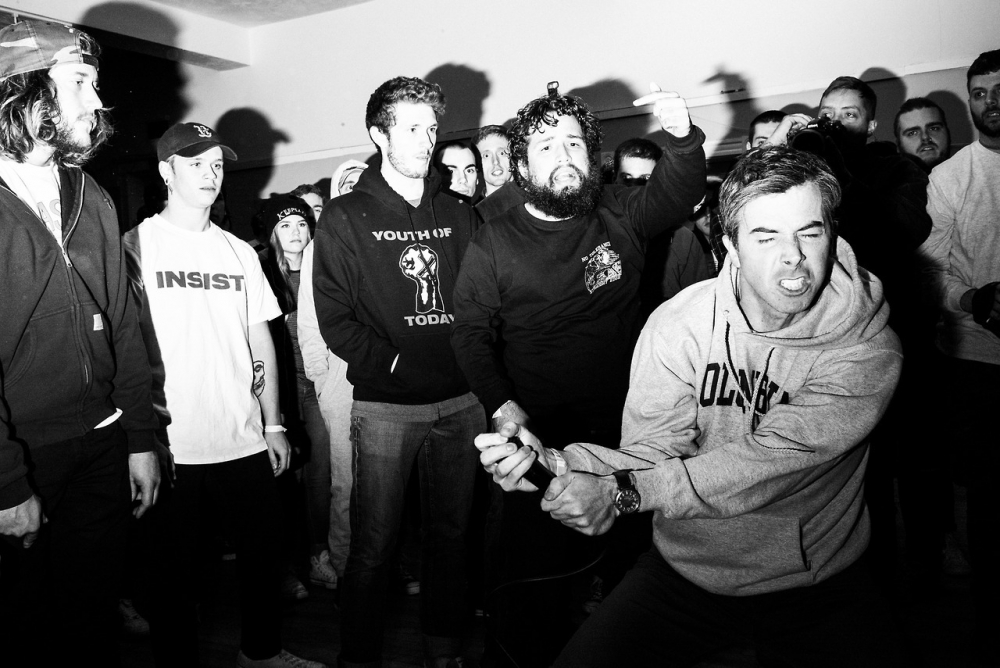
Pat Flynn’s been a constant in the hardcore scene for some years now. From Have Heart to Fiddlehead to FREE, Flynn’s consistency as a vocalist is matched only by his consistency in fusing academia and intellectualism into his lyrical content. While he’s never forced that intellectualism on anyone, it’s woven into nearly all he’s done musically. And while hardcore is a scene predicated on the idea that we all have something to say, it’s easy to for that to get lost amongst the many other convoluted predications of the genre. But for Pat, having something to say truly is paramount. I got a chance to catch up on what Pat’s been up to with FREE and Fiddlehead, the influence of Have Heart, and much more.
Did you always have a sense that you’d find your way back to playing music after Have Heart? Was there a point in which you needed total disconnection from music?
Oh, I never saw myself stepping away from music. Before Have Heart called it quits I had already hit up George Radford and Adam G. (New Bedford hardcore legends) as early as November 2008, to start up a band influenced by the Jason Farrell (Swiz, Bluetip) approach to hardcore — a style that both George and Adam demonstrated in their bands in the late '90s and early '00s. This band would go on to be Sweet Jesus — who put out a demo in 2010 or 2011. Austin and I also planned to do a straightforward straight edge hardcore demo as early as the summer of 2009. That plan became the band Clear, who put out a demo in 2011. Me and Austin planned on doing FREE as early as the summer of 2009. We wanted to take some time thinking that one out.
Have Heart started out as a straightforward Youth Crew band when we were all 16, with intentions of evolving as much as our writing talents would allow us! By the time we were 24, nearing the end of the band, I think our sound drifted away from our original intentions. That happened because Have Heart in 2002 was basically me and the Ryans, and by 2008 it was Me, the Ryans, Shawn, Kei, and then Austin joined up. So, the musical influence took on new eyes and visions. Which was fine. But, by 2009 I was looking to come back to the vein of melodic hardcore that was Have Heart after having a chance to have fun with other projects.
I read an interview or listened to a podcast with an older gent from an older generation that was somewhat critical of the idea of people in hardcore doing “projects” of a certain and specific “sound,” in turn adding to the “codification” of hardcore. I think that’s somewhat of a load of horseshit, or, at least misguided to criticize from the perspective of someone from an older time in the scene.
I started going to shows in 1999. The “genres” of hardcore, by that point had already been pretty well carved out. We were really hardcore kids who came out with an eclectic love for all genres of hardcore. How that showed, at least in my musical expression was Have Heart. I remember on our first website the “influences” read something along the lines of “Swiz, Turning Point, Inside Out, Crossed Out, Embrace.” We were 16 and loved all styles of hardcore and were influenced not necessarily by sound, but energy and mood as well.
If anything, we were criticized by our contemporaries for blending too many genres. We started out as a pretty under-skilled Wide Awake Youth Crew-type band that was aiming to capture the energy of Count Me Out and In My Eyes. Nothing wild, but as we wrote more and more music, we began to blend more '90s-styled bands into our sound and were criticized by the youth crew kids, then we began to blend more '90s alt. style bands into our sound, and we were criticized by the traditional hardcore scene. Nothing crazy, but we really just did what we thought was enjoyable to write and play for ourselves and the people in our audience at a live demonstration of our music.
So, after Have Heart, I wanted to have fun playing music that tried to focus on a singular sound. One of the reasons why I started Wolf Whistle with Trevor Vaughan in 2007 was because I came up in hardcore when there was a thrash/powerviolence revival with bands like (What Happens Next, Tear It Up, Limp Wrist, 97a, etc.) but somehow ended up playing in a band that sounded like Bane and Outspoken meshed together. To devote singular attention to a style seemed harmless to me. Having come up in the scene at the time that I did, it only felt natural to blend the genres.
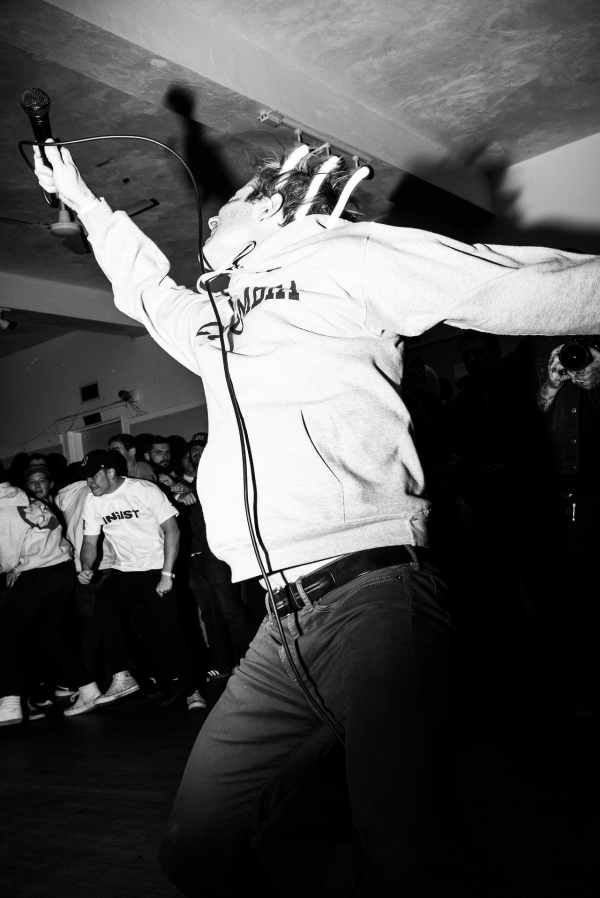
However, and perhaps this is what the criticism of “project-based hardcore” is actually aiming at, what I did see emerge in my first 10 years of going to shows was an even more defined social clique based on the genres of hardcore. My impression of hardcore in 1999 and 2000 was that it was only distinct from the punk scene, which at the time was largely characterized by the intensely materialistic street punk scene of the Causalities and the Unseen. I found little substance there and ventured to the hardcore scene of 1999/2000 in Massachusetts. But, hardcore, in my perspective in 1999 or 2000 was that you could love Floorpunch and Bane and 97a and Saves the Day and Los Crudos, all at the same time. By late 2003, I remember seeing the social divide begin to emerge. For example, at the last A-Team show, I remember Jon Clark randomly saying “I hate Bane” in his “farewell speech” and the crowd jeering. Now, I loved A-Team, but I also loved Bane. I didn’t get it. But, it seems like human nature to feed off an “Us. Vs Them” mentality, as the creation of a “Them” can bolster the self-image of “Us.”
I’ve drifted from the original question — but, before I return, I’ll say this: I see that social divide between the genres in my own local scene, and I think that is what makes for lackluster, poorly attended, uncreative eras or scenes in hardcore. The scenes that don’t give a fuck about labels or appeasing the Ian Mackaye’s or Raybeez existing in the back of their minds are the scenes that thrive, and in my view, have more in common with the Ian Mackaye’s and Raybeez. The so-called founders of hardcore didn’t seem to have this crazy fixed social blockade between the genres, at least to my knowledge according to the old-timers who were present at the time (that I incessantly hound for their perspective). Hardcore is best when people don’t let the sound of the music get in the way of the behavior of the people. In other words, hardcore at its best sounds however it sounds as long as it strives to build a diverse community, not break it into a singular collection of mini-tribes of hardcore.
So, to answer the question, I never wanted to drift away from writing and playing music. In 2009 I needed that outlet way too much to work out and deal with the demons in my life. Writing, creating and playing music was too much of a positive experience for me between 2002 and 2009 for me to think of it as something to step away from. What I really wanted to do is have fun playing specific styles of hardcore that I grew up loving, and to also get back to smaller, more local scenes of hardcore. Have Heart definitely drifted from the smaller, local scenes by 2009 and operated on a more international / global community — which was incredible and life changing, but also harder to build the more intimate relationships one has within the context of a small, local scene. Which, to me, is the foundation for a thriving hardcore altogether.
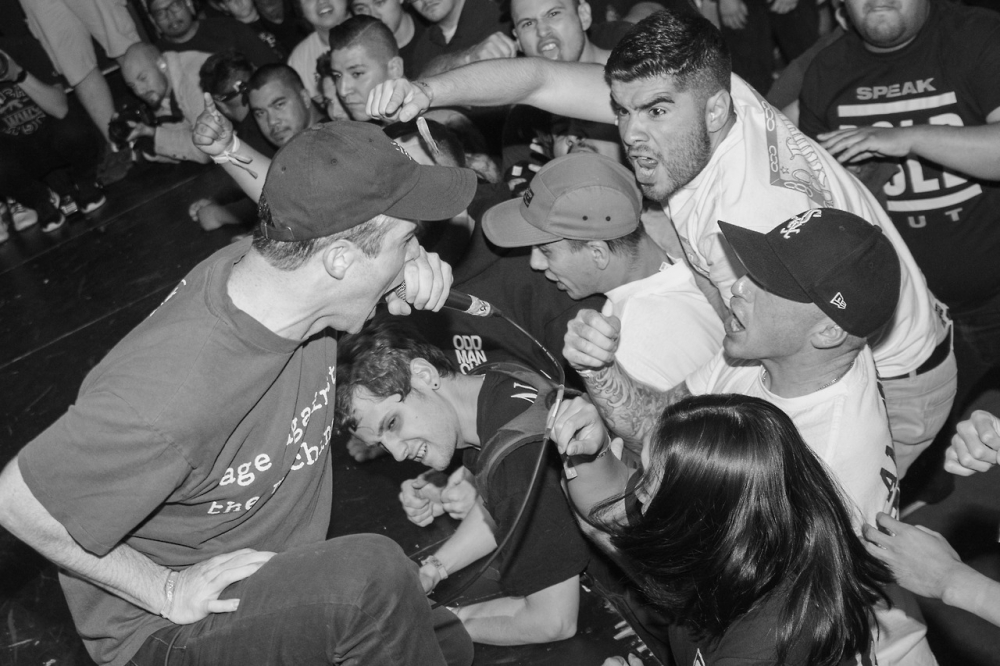
What, if anything, did you come to realize/come to terms with in the time between Have Heart and FREE? That was about six years, no?
Man, the world that changed for me between 2009 and 2015 (when FREE started up) is hard to describe. In late 2009 and early 2010, I had a whole lot of personal heartbreak and familial tragedy strike. Some of the people I love the most in my life either moved on, went to prison or died. I won’t go into too much detail but those were some real hard and dark years for me. I also became an educator and furthered my love of historical analysis. Forging a career amid the turmoil was real difficult. I think having side projects like Wolf Whistle, Clear, Sweet Jesus, and Fiddlehead was the ferry that got me across. By the time the storm of transitioning to the point of acceptance for a new way of life forever unlike the one I knew before I found myself really seeking a band to serve as an open outlet for the experience. I think that’s where FREE comes into my life.
I came to realize by 2015/2016 that love, friends, creative expression and community-building are marrow-deep in my personal identity. Those are the staples of who I am that influence my behavior. I struggle to find a sense of harmony and peace without fostering each of those four tenets of my life. However corny, cheesy or lame that may seem, that’s pretty much who I am at this point in my life and I really struggle to see that changing. I suppose FREE provides a platform for nourishing each of these cornerstones of my identity, as does my career as an educator and role as a family member and spouse. But, I don’t think I see myself playing music forever. For right now, FREE is a way for me to keep track of my priorities in life.
Have Heart’s lyrical and aesthetic content were rife with literary allusions. Why did you make such a conscious effort to include those references?
I don’t know how conscious this always was. I grew up as the son of an AP English teacher and lover of poetry (my father) and as a hardcore kid during the golden age of Bane — where reading Aaron Bedard’s lyrics and reflecting on whatever ideas he had to offer about life in between songs at live shows was an essential component to existence. Point being, both figures were massively influential in my creative expression and both leaned on literature for wisdom, guidance and meaning making. I also grew up with a passionate love for history. And, I suppose, leaning on the ideas and wisdom of literary figures is an act of seeking wisdom by way of history. I tend to think our more modern world of right now is one that has just been suffering from a massive deficit of the span of attention. The slowness of life allows for, in my opinion, a deeper and more careful appreciation for all aspects of it. I suppose that is what I’m always trying to do when writing lyrics: offer a careful appreciation for my surroundings — and the ideas of historical figures in the literary world have always felt like a trustworthy place to go to for how to capture the meaningful, tiny details of life.
SEE ALSO: 2018 interview with Scott Crouse (Earth Crisis, SECT, Path of Resistance)
FREE seems to be at a once a logical extrapolation and yet a much angrier tangent of the Have Heart sound. How much of your, Kei, Ryan, Austin and Shawn’s time writing and recording in HH has influenced the music in FREE?
FREE is Have Heart with a different name. The spirit is the same and so is the creative process: energy-inducing, thought-provoking and wholly democratic. Whereas previous projects like Sweet Jesus or Fiddlehead aim to capture a style or emotional moment, FREE intends to galvanize some energy in hopes of eliciting an ounce of thought that inspires real, substantive change in the pursuit of building a community. In other words, we want people to move, but not just for the sake of moving.
The thing about hardcore that I’ve always loved is how it has appeared distinct from mainstream/pop-culture music scenes. And, to me, what is most apparently distinct about hardcore is when kids are singing along to the verses of a song. Not the catchy nursery rhyme chorus, but the verses of songs. If the band is offering something truly thoughtful, you will see kids singing along to the verses, where the real meat and substance of a song comes out. Seems like there has been a lot of talk about the “fuck you horse shoe” era of hardcore in 2018. I don’t really see that as a problem of the kids…I see that as a problem of the bands and the promoters. You shouldn’t expect there to be kids up front for you to sing to at a hardcore show if you have nothing of real substance for the kids to sing along-to. Also, if you’re a promoter, and you’re booking bands with nothing of lyrical substance to offer, don’t expect much more than a ‘fuck you horse-shoe’ which is really just the product of three kids who think the zenith of hardcore is when they whip their arms at the crowd or in front of the stage. I think a better, more effective phrasing of the term should be the "Fuck-You, GIVE US SOMETHING TO SING ALONG TO-Horse-Shoe."
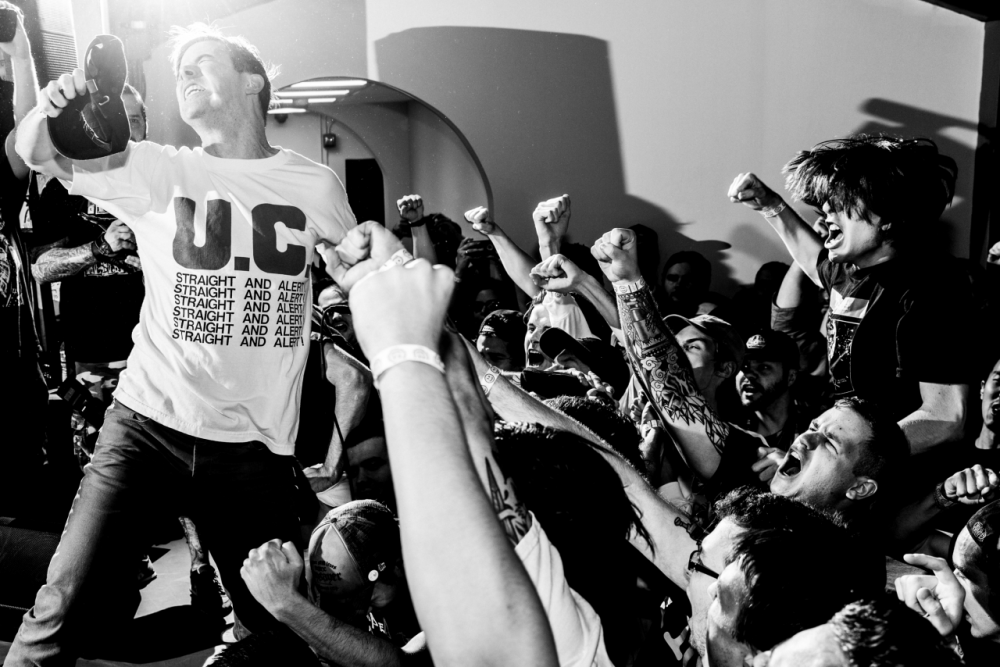
As an educator, I believe young people most want to find some type of meaningful connection in their lives. What greater connection is there to be had than risking your physical safety at the front of the stage, subjecting yourself to a 180+ bodies jumpingon you just to sing-along with other people? That has to be a meaningful connection for hundreds of people to subject themselves to
That is what separates hardcore from some stupid Soundcloud rap show or a mainstream rock concert, not kids just moshing. You can find that anywhere in any bro-music scene. Not kids just singing along to a dumb, lazy chorus. You can find that again, in any thoughtless danceclub / bro-music scene. Not just kids dressing exactly the same as the clown on the stage. You can again, find that in any scene. What you can't find just anywhere are hundreds, and I mean actual hundreds of kids singing along to a dense and coherent verse. I emphasize coherent there because its easier to throw a bunch of unrelated, nonsensical words together that offer no real actual meaning than it is to attempt to create a cohesive point of argumentation. That’s….pretty hard to do. What is difficult is getting people to lose their minds stagediving, dancing while also singing along to a long and enduring verse of a song comprised of actual lyrical coherence and substance.
That all sounds like a lot going on at once, but I’ve seen it happen. Look at any Los Crudos gig from the late 90’s or Bane show from 2002 — 2004. The kids are singing along to every word, not just moshing and dancing aimlessly like some frat-boy partier, but real connection. The lyrical quality on Give Blood is fucking crazy. Bedard is not offering nonsense in those lyrics – and there are a lot of them. And, kids went nuts while singing along to every word. I see it in bands of today as well. Bands like Firewalker and Abuse of Power have something to say and the kids are responding and showing in the verses.
With FREE, we’re not terribly interested in getting people to just mosh or move. We’d like to get people to think and connect on a human level. To me, humans do not reach their potential when they simply just apishly move together, but when they think and verbally exchange their thoughts together. Call it ideal, I call it height of human potential.
We’re also not terribly interested in “dominating” the scene. We started the band for three reasons, to create an outlet of positive expression, connect with each other as friends and take part in some type of community building experience of the hardcore scene. One of my all time favorite hardcore bands is All Chrome from New Bedford, Massachusetts. A pretty much unknown band that fused the sound of Verbal Assault with the likes of Quicksand and Supertouch. What is important to me about that band is the community it fostered. Had they not formed, I know I would not have fell in love with the hardcore scene and perceived as a real community of creativity. I would have drifted off in search of something else. They never toured extensively or put out an LO. But if Have Heart or anything I’ve offered to the hardcore scene had any positive impact, then All Chrome sure as hell played a major role in the hardcore scene.
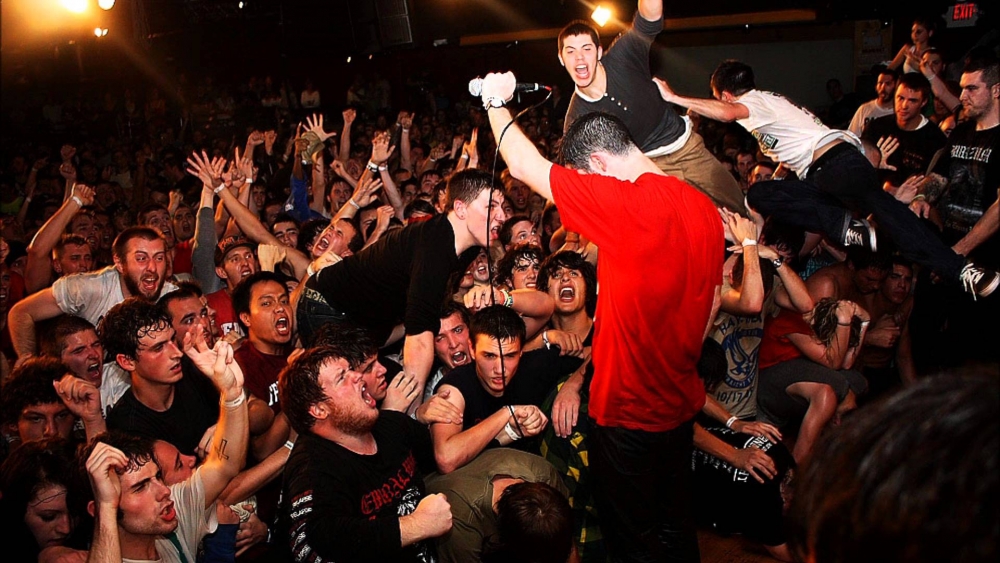
I love history and a causal analysis of it. You get to see how things that are seemingly so small on the surface can have a profound and lasting consequence. HH had a nice time in the sun with a large audience. I am grateful for that. But, I do not think that is what makes hardcore great. I think the small, but enduring communities that encourage and promote creative expression, especially for young people, are what make hardcore really great and distinct from pop culture. Thats what FREE really wants to be a part of. A small scene that promotes young people. We’re trying, but the realities of adult life can get in the way. We certainly do not want to take a spotlight from the next generation.
At its heart, hardcore is a youth movement. Now, as the first generation of hardcore hits their '50s and sooner, their '60s, I think there is a weird identity crisis happening. I think some of the older generation has failed to see the importance of the next generation making pathways for it to thrive. I’m not against older people in hardcore. I think it’s vital for its survival. What I am for is the active promotion of the next generation that goes far beyond taking a new band out on tour or giving them a one-off chance to play. What I wish happened in the late '90s and '00s was that the previous generations didn’t sit around and complain about the current generation of the time or start a “glory days-seeking” reunion band. I wish much of their energy was channeled towards finding venues for the new kids to play, and to continue to play.
We live in a country that doesn’t give a fuck about its youth. It sees the youth as a consumer for a shitty product to be sold. It does not see the youth as potential idea-makers and policy changers. If it did, you would see far more outlets and real venues for young people to come together and take part in the creative process. I think that’s where true lifers of the hardcore scene have to step in. That’s where I want to see myself aging the hardcore scene. A show-promoter who can use their adult skills to help track down a venue or place to play that is consistent and conducive to keeping an enduring subculture thriving as a sub-culture, not a subculture seeking to be on a major-label.
FREE probably has one more record left in us. I have some things I want to say and express and demons to deal with by way of FREE. We’re not trying to recreate Have Heart. Hence why we didn’t just start back up as “Have Heart.” That’s not our aim and never was. We don’t want to be the band that hogs the spotlight from 15 and 16-year-olds who need it way more than a group of men in their 30s. What we want to do is create the space for a small community of real thought and togetherness to emerge. If I can do that in lyrics, or on stage between songs, or in the bands we book to play with us, then we’ll keep free going.
Again, the realities of adult life get in the way. Hence why we’re not tour-dogs like we were a decade ago. Ideally, moving forward we play the same small scene in New England, over and over and over until we get another record out and feel like we offered a positive contribution to hardcore that allows for it to continue in a more positive way.
We miss touring. But, that is also why we broke up. That is just not a life for us. I love my career as an educator and fostering the close relationships I have. And, I just cant find a way to juggle both. I’d we’d like to play out more consistently in a single region of the country in hopes of creating a more consisten community like the one I saw emerge in 1999 under All Chrome in New Bedford, MA. Nothing visibly big — but in its consequences, massive.
“Sisyphus” seems to pick up on your tendency toward allusions. The lyrics here are closely tied to both the myth itself and our own world. Why does this mythological story seem so apt to you these days?
I always come back to Sisyphus. I first read Camus’ Myth of Sisyphus while on tour in Manila in 2009 with Have Hart. This band from the Philippines called The Beauty of Doubt had a line from it on one of their shirts or records and it struck a chord with me. I grew up hearing stories about the political and social discord of the '60s, studying history and seeing what you could call “cycles” of content and discontent in America. While I do not think that history repeats itself or operates in inevitable cycles, I do believe that times that mirror the past or share certain patterns can only be broken with an acceptance that the fight for human progress is as eternal as Sisyphus’ terrible fate.
I wrote those lyrics in November of 2016 after Trump’s victory with a personal understanding that there is nothing really new about Trump — a lying, white man with a contempt for the restrictions of democracy in pursuit of personal wealth. The only thing new that could emerge is the human spirit’s resignation to work against such, selfish, individualistic greed. Throughout the history of our world, there has always been some type of resistance for the authoritarian pursuit of individual greed. The fight against it and for a world devoted to the creation of a civilization based on human harmony has only gained traction since the 18th century beginning with the Age of Revolution. Traction, that is. The traction can be lost. It can be found again. However, to simply accept and bow down to the conquest of greed— that would be new for our story as humans. Yet, despite however futile the goal of fostering progress for more humans on earth seems to be, the fight must be picked up like Sisyphus’ bolder.
That’s important for me to keep in mind as an educator and older person in the hardcore scene. For whatever its worth, I think there is value in having an older generation that unconditionally holds up the flag of perpetual resistance for the younger generation to see. My grandparents did that for my parents, them to me and so on and so on. Black Flag, Bad Brains, Minor Threat did that for YOT and Inside Out them to the 90’s hardcore bands of Outspoken and Earth Crisis, and them to me, and I, to the youth of now.
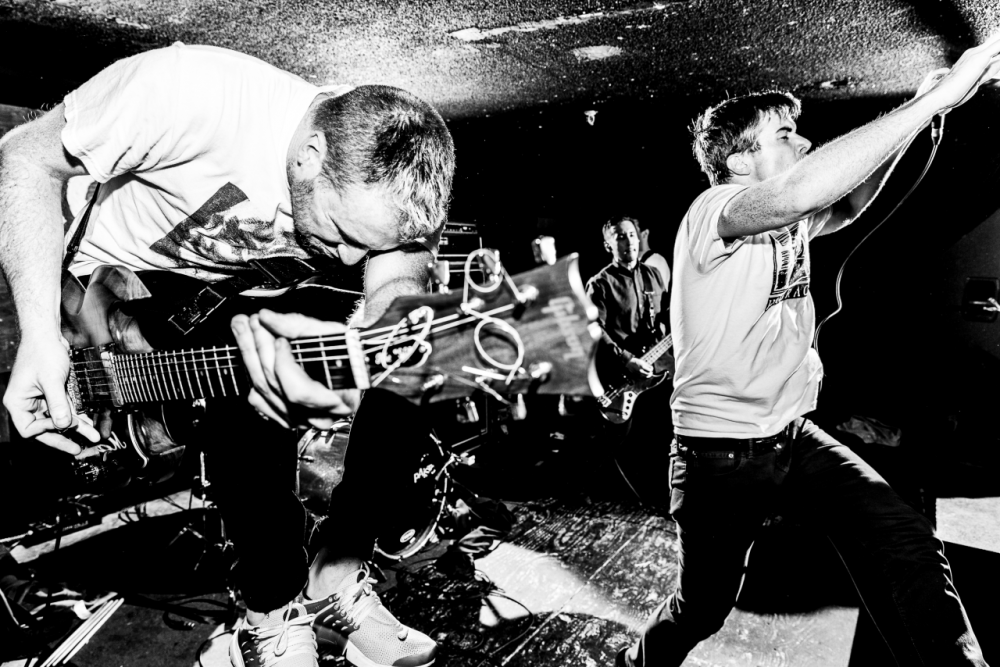
“We Live Free” deals with youthful expectations and adult realities. How do you reconcile what you’ve hoped for versus what you see in our world? Is the band name thus an acronym as the lyrics in this song suggest?
Yeah I think "We Live Free" was really born out of a recognition of my continued appreciation for the ideals and values of the Enlightenment – the idea of the individual mattering in their society and freedom as something that is natural, and in turn a right of nature for all human beings. I remember my middle-school history teacher Mr. Hall sending a lightning bolt through my head in his outdoor lecture on the concept of natural rights touted by the philosophers of the Enlightenment in the 17th and 18th century. I suddenly had no regard but to accept the natural state of both freedom and equality by their logic.
That legitimately stayed with me throughout all of my life. Now I see the struggle between people seeking to create a world based on freedom vs a people seeking to create a world based on equality. The obvious answer to me, however, is both can only exist simultaneously. My concept of what it means to be FREE is tightly tied to what it means to be equal in society. One cannot truly, meaningfully exist for a lasting time without the other.
The original title for the band was F.R.E.E. (Free to be (&) Right to choose: Equal to me, Equal to you) This just captured my personal philosophy of what true freedom meant. I love the word, for obvious reasons and all the images it conveys, especially as someone with a sibling in prison. –
Now, obviously I knew head-on that there would-be jaded hardcore kids retired into the lame-ass world of “classic rock” who would shit their pants because we named our band after Bad Company’s band before Bad Company. So, having the band really be an acronym made sense to avoid that issue. But, the guys in the band voted down the acronym of the band, as we tend to be pretty directly democratic in our decision-making. So, we’re left with a lot of resigned former hardcore dudes pointing this out much to their dismay. Which, actually, brings me some joy. We’re actually now thinking of changing the name of the band to The Beatles or Metallica just to really stick it to them.
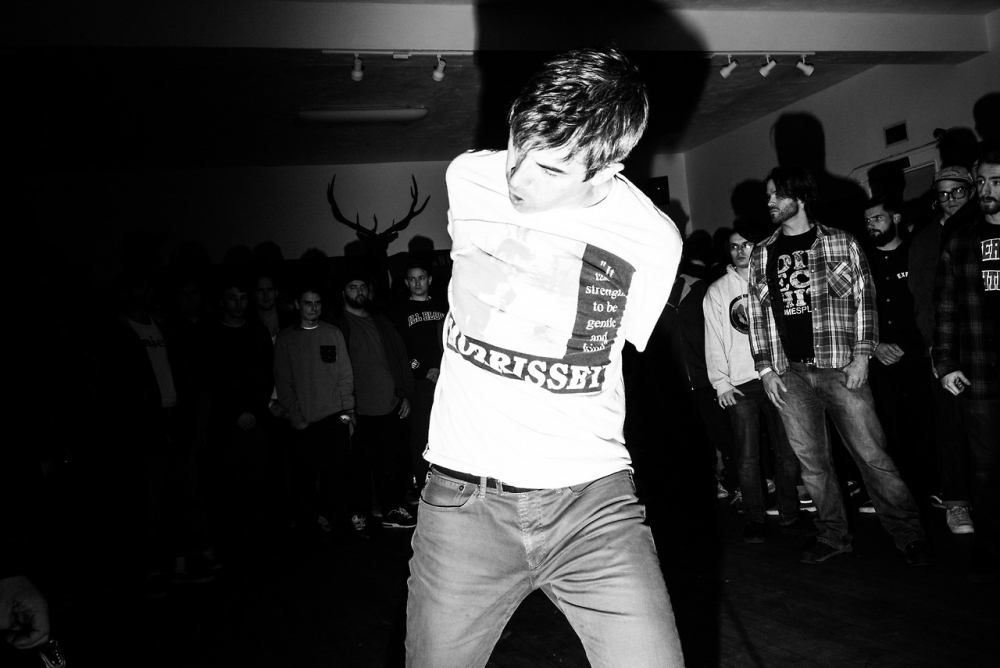
Who do you quote in “Equity Head”? Why did that quotation seem so apt to you?
I’m quoting/paraphrasing the people of color I have encountered in my own personal relationships, friendships, general encounters, readings (Race Matters, Cornel West) and observations. That song to me speaks to the importance of recognizing whiteness, the benefits that come with my whiteness, the space it takes from others either explicitly or implicitly — not in some bullshit white guilt shaming way. But, for getting myself to be a true agent of changing and recognizing that real equality requires equity, which means losing some things I have found to be a source of comfort as a result of the privileges afforded to me by way of the “luck” of being born white in an era of history and region of the world that safely protects the dreams of those who are white, while marginalizing, slowing down or even ending the dreams of those who are not.
At a young age in middle school and on, I studied, rather intensely for a middle-schooler, the racism of the Jim Crow era. A part of me loved the idea of the Freedom Riders and the big movers and shakers of the Civil Rights Movement. They had a clear and present danger to combat. The fight between good and evil was seemingly, from my 12 year old perspective, obvious. But, growing up white in a predominantly white and middle class part of Massachusetts, I couldn’t sense the same injustice one would find in Birmingham, Alabama in the 1950’s and 1960’s, but I knew it was there. The implication in who I saw and DID NOT see in the media left me with that lingering impression of injustice and inequality.
Now, with the thanks of brave and courageous people of color who run the risk at being told to “Shut up – there are no problems, we live in a post-racial America, blah blah blah” or that they are seeking problems that aren’t there, I am able to really see the ways in which racism continues its fight in perhaps even more evil ways, at the subtle, but insidious institutional and systemic level that holds its position of power with politeness. Recognizing this, I now know my generation’s fight and believe that it begins, for me — as a white, middle class male, with (1) recognizing my own role in the oppression and marginalization of people of color and (2) promoting equity, much to the dismay and disagreement of fellow white folk who may just think I’m on some white-guilt bandwagon. My hope is through discussion, controversial conversation and organizing action I’ll look back on this era as the turning point in the evolution of how we once understood equality as a mere definition of basic equal distribution of opportunity into a conceptual understanding of equality as a state and action of a morally just distribution of opportunity that takes into account the shortcomings equal distribution.
In short, I hope to see the equality incorporate justice into its definition. However flawed that is - but, it’s just too easy for people to say, “hey, you have your equality. Look at your de-segregated schools. They’re all free to everyone! That’s equal opportunity.” A more equitable understanding of equality would not be satisfied with such a shortsighted take and would not dare to say that equality has been achieved until more realistic and sensible measures have been put in place to provide a real opportunity for someone to enjoy a decent life.
The circle logo is supposed to me “TRUE EQUALITY.” Not sure if that caught one. No worries though. The ideals continue.
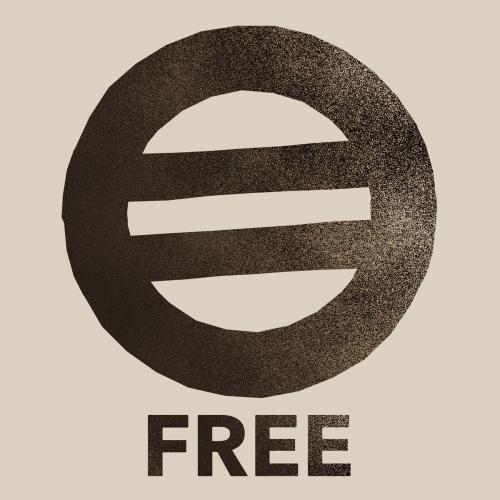
“MA Flex” takes on the Massachusetts hardcore scene. What moved you to write the song? Did you have Sweet Pete in mind as a guest vocalist, or did that come together after the song came together?
I love Massachusetts and think it has a great history of hardcore. However, as in every scene — tough guys and elitists have had their way of destroying it all for everyone. The best hardcore to me in Massachusetts has always come from the bands who promoted individuality and community at the same time, two things that I think run counter to the tough guy-goon and elitist assholes in any and every hardcore scene. To me, Massachusetts hardcore has symbolized a scene of thought, not muscular frat boy bullshit or hardcore historian dickheads who seek to make the new kids feel small. I’ll stand by that until I’m old and gray(er).
SEE ALSO: 12 Newer Hardcore Bands to Check Out in 2018
How was the European tour FREE did back in December?
It was great. The guys in Abuse of Power are genuine lovers of hardcore who want to see the scene grow. I hope they catch on. We met and re-met so many great people. The conversations were meaningful and a laugh a minute. New Year’s Eve in Dresden, Germany was an explosive dream, especially for a history teacher like me. I could not have asked for a better time. The shows were totally awesome too.
How did Fiddlehead come together? What sets Fiddlehead apart from FREE or Have Heart?
Fiddlehead started with me and Alex Dow listening to Fell to Low from California and Archers of Loaf. We were living together in Boston at the time. I was in grad school, recently broken up from my longtime girlfriend, he was figuring his own life out. We were two pretty depressed guys looking to be creative and do something slightly different from our friends in the Boston hardcore scene. I hit up Shawn Costa to jam with us and Alex Henery had just moved to Boston and was bandless because Basement had just broken up. The stars were aligned. We practiced. Wrote a song called ‘Birdnest’ pretty quickly. Loved writing together and the vibe we could create and just kept running with it.
I suppose it’s most different in sound. But, most similar to HH in how personal the lyrics are. We just finished an LP which is entirely an ode to my mother in her grieving the loss of my father. I’m real proud of the record and can’t wait to get it out there. Most importantly is that I’ve addressed some demons and feel more at peace with some hard realities of how life works.
You often quote Yale historian Timothy Snyder on your social media. Why do his writings resonate with you?
I discovered Snyder a few years ago when I began teaching a course on the Holocaust. I found in him a poetic prose to his writing of history, which, for me, as the son of a man who taught poetry after retiring from the Army and growing up a lover of history – hits the nail right on the head for me. I can’t think of another historian that can convey the grim realities of the 20th Century in a way that makes it almost real to the 21st Century mind.
He also, in his most recent pamphlet On Tyranny: Twenty Lessons from the Twentieth Century can write in an even more meaningful way ala Thomas Paine’s Common Sense. He can write to the masses, especially the youthful audiences. As an educator at the secondary level and believer in Vygotsky’s theory of the "Zone of Proximal Development," I am on the constant hunt of the academic material that is just complex enough for the teenage mind to not only comprehend, but to be stimulated by. I’ve been using On Tyranny as a fixture in my course on the Holocaust and have only found students to be able to digest the material and walk away from a meaningful historical sense of themselves and their time in the present. Amen to that man.
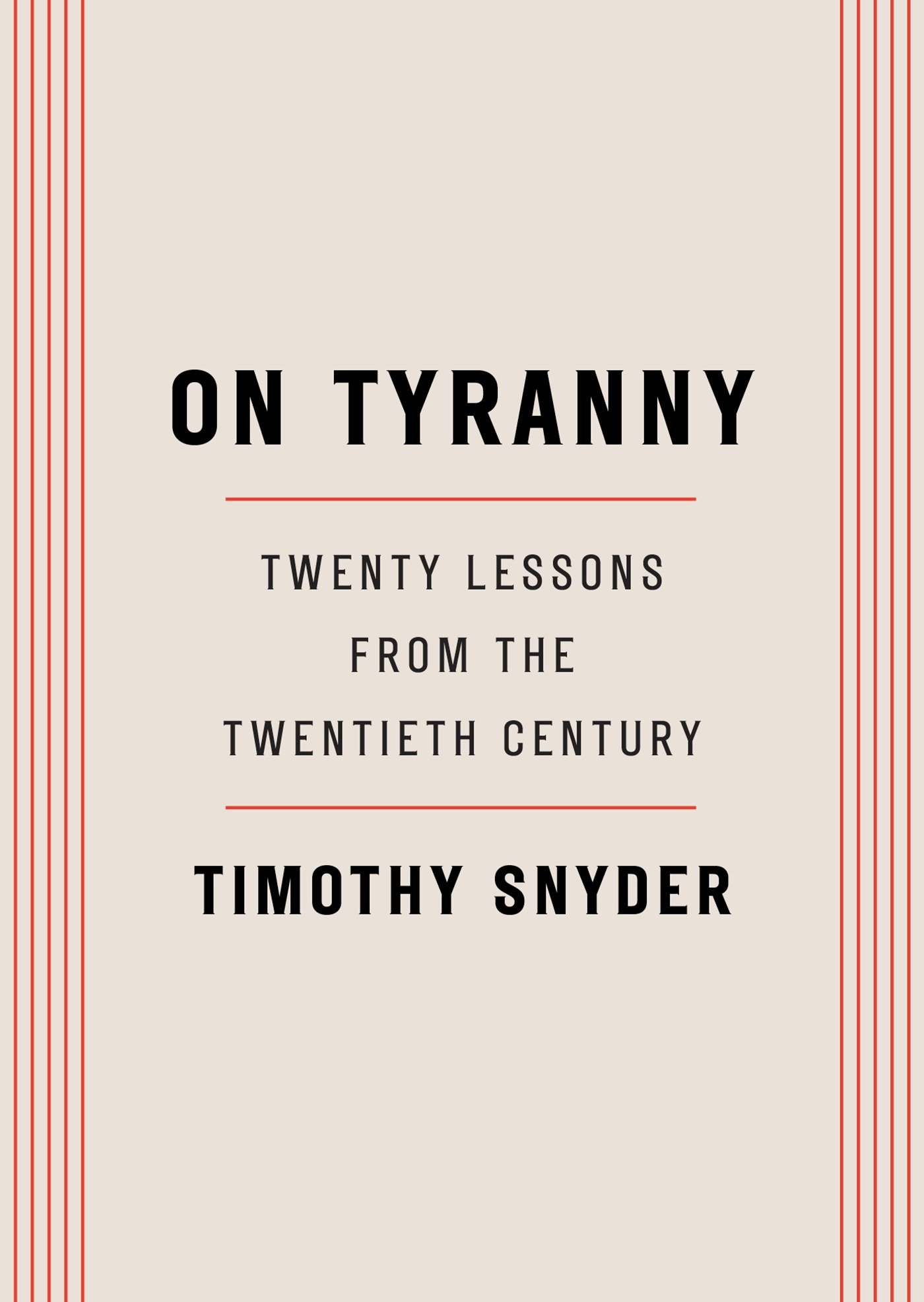
What, if anything, has your experience in music offered you in terms of now being a history teacher?
Everything. In terms of maintaining some sense of youth culture and how history works. Seeing my own musical-work age and progress in the scene has offered me some insight on the workings of history. For example, I’ve recently seen how my contributions ten years ago are starting to be both remembered and historicized. I have problems with both. For one, much of what Have Heart offered is remembered out of context and often times misinterpreted. This is classic for the workings of what memory is and makes perfect sense.
However, the way in which Have Heart (and many other acts that I witnessed with my own eyes) is being historicized is somewhat more problematic to me than the way in which bands are being remembered. Now, perhaps one is saying to themselves right now “What the hell is the difference between memory and history?” I think there is a huge difference. To paraphrase the late historian Tony Judt, history and memory are step-siblings. They don’t really like each other, but have to work together. Memory being somewhat more fun, tempting and easier to swallow, History is an old man, stubborn, calling for slowness and careful, critical digestion, often times rejecting the first 20 attempts for digestion.
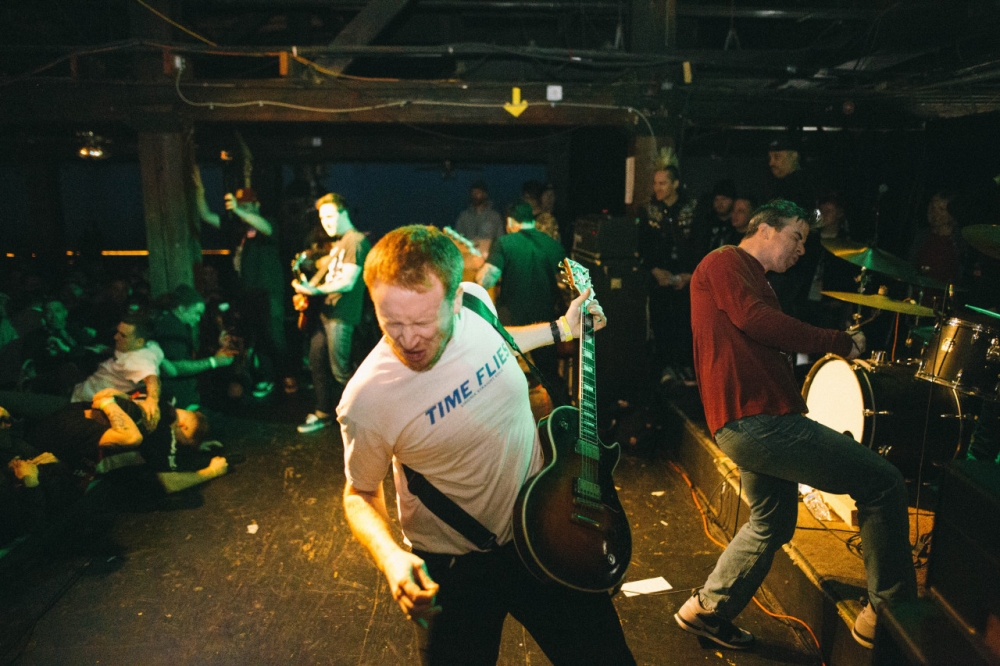
What am I getting at here and how does it relate to hardcore? Well, for example, I appreciate Tony Rettman’s contributions to the development of the memory of hardcore. But, many, I think are confusing "oral history" (aka MEMORY) books like his (as there are many) with an actual history book. I think this is a dangerous confusion. I think most people look at memory as totally flawed with personal, subjective bias - not to be taken too seriously. Whereas History, however erroneously, tends to be thought of as a more accurate account of the objective truth, to be taken very seriously because of its critical vetting by the credentialed experts in the field of history. Wise historical thinkers will know this is never the case with history and that further interpretation to reach the unreachable state of objectivity is always a must.
I’m not a fan of oral history or even the phrasing of it because it throws in the word “history.” A clear line separating the two is necessary for creative a reliable account of the past. When we mistake people’s biased memories as history, we tend to use over-romanticized ideas of the past and apply them to building a future. Like, the idea that America was “great” is an insanely biased, one-sided perspective to have and to use for forging a way forward. Yeah, it was great for white, upper-class men. To try and create a future based on that is really only to further diminish the chances of there ever being a society that is great for all people.
Getting back to hardcore, I have no real problem with Rettman’s books outside of the fact that some interpret them as history books. I’d like to strike the idea of ‘oral history’ as a term and replace it with ‘oral memory’ or market such books as "memory books," and not "history books."
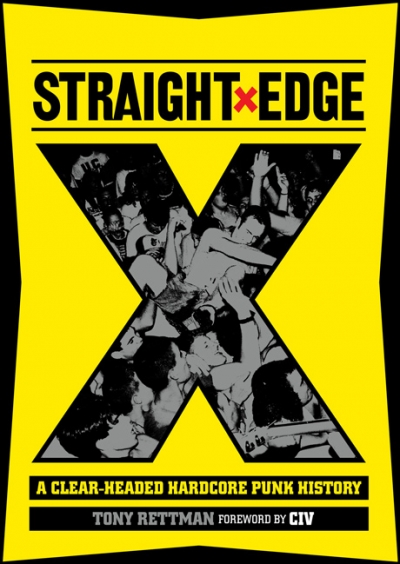
A "Memory Book" may not be as marketable as a ‘History Book,’ but it may be more honest. I’m in the recent Straight Edge book – as are many friends of mine. But, I just think it would be nice for there to be a real historical analysis of an era of hardcore. A problem I have with most attempts to demonstrate some type of history of hardcore is that it leaves out so many perspectives. We almost only get the perspective of people in bands….10, 20 years removed. Rarely from the people or women who really did characterize the whole scene. The hardcore scene is so much morethan the bands. And, books that portray it in such a light being a scene fueled by bands give the impression that that is all that matters for the scene to be great.
What would an actual history of hardcore documentation look like? I think it might be really boring for many people. It would require an historian’s critical analytical perspective on the past. Which, is always problematic. The nice thing about Rettman’s books is that he’s almost entirely out of the whole process. You get what you get. There is no, absolutely zero, analysis from him. Just, responses to questions. Which is great, but moreso great for the question “How did people in bands remember their time in hardcore?” not, “What was hardcore really like at this time?”
What you also get from his books is a lot of material for people to, decide on their own in discussion what they think hardcore was really like at the time, based on the multiple perspectives. But, again, 10, 20 years removed? Sometimes that perspective is pretty limited in its value to come to an accurate understanding of the past. What I’d like is an analysis of a certain speech, interview and a commoner’s response to a speech or interview. Does that stuff even exist for us? I think so, maybe archived on message boards, but that’s limited to when message boards even began. It’s a mess and I often wonder if hardcore even needs a proper historical record.
But, having seen the strengths and weaknesses of the so-called historicizing of hardcore before my eyes has really impacted how I teach not just the history of the world but the historicizing of the world. Who’s perspective are we missing? What was the social, political, environmental, cultural or economic context of the time in which this document was created? What’s the subtext of this speech? Those are the questions I want my students reflexively asking themselves when the confront history books or newspapers so that they can recognize just how full of shit most things are in this world.
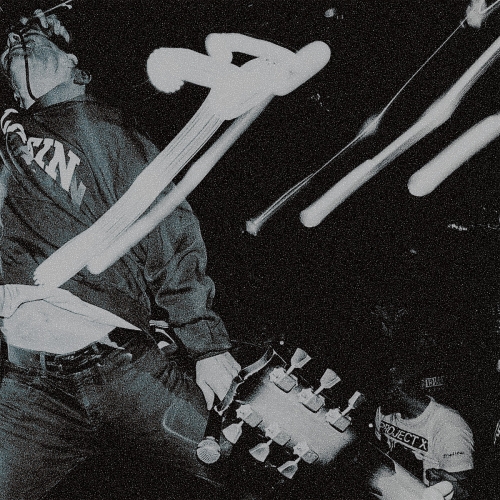
What does FREE have planned in the coming year?
Play as much as we can. Write as much as we can. Build a community as much as we can.
What are two essential books that you think everyone needs to read?
Nell Irvin Painter’s The History of White People and Mark Lilla’s The Once and Future Liberal: After Identity Politics. The pairing of these two books makes for a really enlightening experience.
Who is the most underrated/underappreciated Boston hardcore band (any era)?
Eye for an Eye. Without a fucking doubt. "Signs of the Pride" is the greatest Boston hardcore song ever written. “Don’t you see the way things could be? Not the way they are, but the way they should be? It’s up to you. It’s up to me. No one else will care about our destiny.”
Firewalker could end up being one of the more significant bands in the history of Boston hardcore. They kickstarted a movement to shine a light on the role and experience of women in the scene that was long overdue. I just wish they’d play more often in Massachusetts.
***
FREE's Ex Tenebris EP is available via Triple-B Records on Bandcamp.
Tagged: fiddlehead, free hardcore band, have heart, sweet jesus

